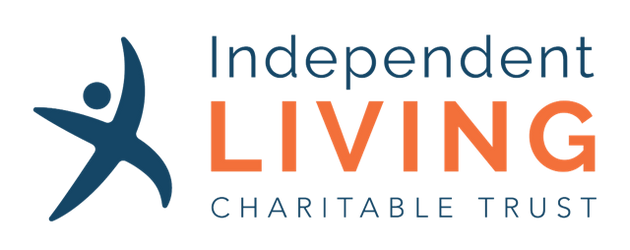
Eating and Drinking Aids Buyer’s Guide
Maintaining independence and enjoyment while eating and drinking can become challenging for many elderly individuals or those living with disabilities. Using the right adaptive aids can promote dignity, safety, and ease at mealtimes.
When choosing the right eating and drinking aids, you must first identify the key areas you’re struggling in.
For example, do you find it difficult to hold cutlery properly due to limited hand movement, or have difficulty with keeping your food on your plate due to tremors, or maybe you struggle to hold cups and mugs due to decreased strength and/or dexterity?
This guide will walk you through who may benefit from eating and drinking aids, what to consider before buying, an overview of the types of products available, and links to helpful resources and possible NZ funding options.
Who Might Benefit from Eating & Drinking Aids?
Eating and drinking aids can make a huge difference for people who:
-
Experience reduced grip strength or hand mobility (e.g., arthritis, Parkinson’s, post-stroke)
-
Have limited coordination or tremors
-
Need one-handed solutions due to injury or amputation
-
Have cognitive or sensory challenges (such as dementia)
-
Are recovering from surgery or illness and need temporary support
These adaptive tools can help to reduce spills, increase your hand & grip comfort, and possibly make mealtimes more enjoyable and independently more self-manageable.

Considerations in choosing Eating or Drinking Aids
1. Mobility and Dexterity Needs
a) Does the user struggle to grip standard cutlery or hold cups steadily?
b) Is a one-handed solution required?
2. Cognitive and Sensory Ability
a) Will the user benefit from colour contrast to help identify food on plates?
b) Are they easily distracted or overwhelmed by complex designs?
3. Ease of Cleaning
a) Dishwasher-safe products are a bonus for carers or support workers.
4. Environment
a) Are meals served in a bed, recliner armchair, or in a wheelchair?
5. Budget
a) Some aids are simple & affordable; others may be more of an investment.
You can view the full kitchen equipment range here: www.ilsnz.org/collections/kitchen
Product Categories and Options
![]() 1. Cutlery and Utensils
1. Cutlery and Utensils

-
Easy Grip Cutlery – Designed with larger or shaped handles for those with reduced grip strength.

- Angled or One-Handed Utensils – Help those with limited movement on one side of the body.

-
Built-Up Handles or Foam Grips – Add-on grips for regular cutlery to make them easier to hold.
2. Plates, Bowls and Food Preparation Aids

-
Scoop Dishes & Plates with Rims – Make it easier to scoop food onto your eating utensil when using one hand only, or if dexterity or tremors make stability difficult.

-
Plate Guards – Clip-on edges to guide food onto a fork or spoon.
-
Non-Slip Plate Mats – Prevent dishes from sliding around.

-
Chopping Boards with Spikes or One-Handed Supports – To help hold food steady while cutting.
3. Cups, Mugs and Drinking Aids

-
Two-Handled Cups – Provide better grasp and tip control.
-
Straw Holders & Drinking Straws – Keep straws in place and reduce mess.

-
Anti-Spill Cups with Lids or Spouts – Ideal for those who are shaky or bed-bound.
![]() 4. Feeding Support & Accessories
4. Feeding Support & Accessories

-
Adult Bibs & Clothing Protectors – Washable or disposable options help maintain dignity and protect clothing.

-
Lap Trays – Stable surface with a cushion base, with raised edges and handles, ideal support when eating in bed or a chair.
See our bedroom guide for information on lap trays and overbed tables.
Nutrition and Supplement Support
For those needing additional support with nutrition, our Auckland Independent Living stores also stock food supplements and food replacements that can support some dietary intake needs, but always check with your healthcare provider before starting a new food supplement.
-
Protein and Nutrient-dense drink for those who struggle with low appetite or weight, or for post-injury recovery. Independent Living recommends the Flavour Creations Recover, Nutritionally Complete and Carb Plus ranges.

-
Thickened Fluids and Jellies – Helpful for some individuals with food swallowing difficulties (dysphagia).
View our range of food supplements here: www.ilsnz.org/collections/food-supplements
Funding Support in New Zealand
There may be funding available to assist with the cost of eating and drinking aids if you have a long-term disability or health condition. If you need help navigating any possible funding options, our ILS team are happy to assist, and here are some possible sources:
1. Ministry of Social Development (MSD)
a) MSD may provide funding for adaptive eating and drinking aids if recommended as part of an individual equipment package by an occupational therapist or needs assessor.
b) Learn more: govt.nz health funding
2. ACC (Accident Compensation Corporation)
a) If the need arises from an injury covered by ACC, they may fund mealtime aids to support recovery and independence.
b) Learn more: acc.co.nz aids and equipment
3. Work and Income NZ (WINZ)
a) You may be eligible for financial assistance under the Disability Allowance for essential daily living aids.
4. Charities and Community Groups
a) There are community organisations like the Cerebral Palsy Society (www.cerebralpalsy.org.nz/member-services/grants) or Jubilee Trust (www.jubileetrust.nz), and other local disability support groups who may offer small grants or some funding towards some essential equipment.
b) Check with your local Needs Assessment Service Coordinator (NASC) (www.disabilitysupport.govt.nz/disabled-people/assessment-and-funding/needs-assessment-services) or local disability advocacy group.
![]() Additional Considerations
Additional Considerations

-
Dignity Matters: Choose items that look more like regular dinnerware and less medical in nature, to help self-esteem.
-
Long-Term Value: Reusable, dishwasher-safe options are more sustainable and cost-effective in the long run.

-
Safety First: Products with non-slip bases or wide handles can help prevent spills and burns.
Final Thoughts
Eating and drinking should always be a safe, satisfying, and social part of daily life. With the right tools, you or your loved one can enjoy greater independence and confidence at mealtimes.

Explore the full range of kitchen and nutritional aids: www.ilsnz.org/collections/kitchen
Explore the full range of food supplements:
http://www.ilsnz.org/
We’re here to help
We know it can be a bit overwhelming with all the choices out there. That’s why our team is here to help you find the right eating and drinking aids to suit your needs or the needs of someone you care for.
Visit our stores or browse online at www.ilsnz.org, or give us a call on 0800 625 100.
We’re always happy to help.
Our stores are open:
-
Monday to Friday: 9am – 5pm
-
Saturday: 9am – 4pm
